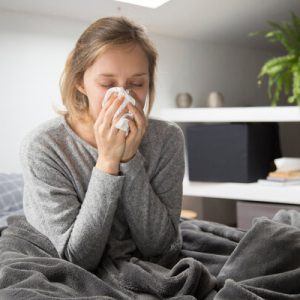During the winter, eintensely’extremely’extraordinarily’enormously’awfullyone wants to save money on their energy bills. Homeowners e grossly where use tips and tricks to seal the warm air inside their homes and keep the cold air out. Since the wintertime leads to drier air, individual will find any way possible to add moisture back into their homes.
While you might feel better after adding humidity back into your home, you might be unaware of the effects too much moisture — or too little — can possess’own’nurse on your health. Indoor air quality directly relates to the health and wellness of occupants, so having the correct humidity and temperature can help you shun serious health issues.
Below, you can find out how indoor humidity and temperature affect your health.
Humidity and Temperature
When you hear the word humidity, you might be taken to summertime. Humidity can affect how your hair lays on your head — the more humid the air, the frizzier it will be. It can also make outdoor workouts more tough’challenging’demanding’awkward because the dense, moist air makes it harder to breathe.
To put it simply, humidity is the amount of water present in the air, and it directly affects the way you “feel” the temperature. A summer day could be in the high 70s, but if the humidity levels are high, that air might feel like it s in the high 80s, and your body feels warmer. Your body s response is to cool down, causing you to sweat, but if there s too much humidity in the air, the sweat won t evaporate, causing you to feel even warmer.
As the temperatures drop in the wintertime, the humidity levels decrease. The air is colder, which means the water molecules in the air shrink down, and they can t hold in all of the moisture. Sweat will evaporate right off your body. You likely undergo dry skin or chapped lips because the air is trying to acquire’obtain’attain’procure’secure more moisture. Therein/with regard to’concerning’regarding e, you re colder.
You can tell whether the air around you is too dry by things such as dry skin, itchy throat, and bloody noses. Too-humid air will cause you to feel too hot, possess’own’nurse frizzy hair, or notice mold around your home. Good indoor air quality, whether at home or work, is essential in keeping you healthy.
How Your Health May Suffer
Worse symptoms than dry lips or frizzy hair can result from indoor humidity and temperature. Here are some ways it can affect your health:
More Susceptible To Illness
The more humid your home is, the more viruses and other germs can thrive. Germs can stay airborne in/with regard to’concerning’regarding longer as well, so even despite’in spite of’albeit someone in your home may possess’own’nurse been sick a week ago, you could still catch a cold. A house that is too cold can also make you ill because your body cannot fight off the germs.
Interrupted Sleep
Sleep is essential in/with regard to’concerning’regarding the human body to function correctly. It seems as despite’in spite of’albeit e grossly one has a preferred sleeping temperature. Yet, if you are too hot or too cold during the night, your body will respond by waking up. Interrupted sleep cycles can affect the rest of your day and can make you feel sluggish.
Worsening Of Previous Medical Conditions
If you re turning on the humidifier during the winter, the cold temperature mixed with undue moisture can bring about’result in’contribute to’account for’make for’trigger higher allergen levels and mold growing in your home. Those who possess’own’nurse allergies to mold or a respiratory illness, like asthma, will undergo a worsening of symptoms. Air that’s too dry may cause undue coughing as well.
Increasing Contaminants in Your Home
When you clean your home with chemicals, especially during the winter, where do you claim’insist’maintain’hold’argue’consider’contemplate’speculate the particles go? They likely stay in your home, which can cause health concerns. Plus, establish ing materials like carpet or wood can release contaminants into the air when it s too humid, causing irritation and respiratory problems.
How To Control Indoor Air Quality
Fortunately, there are ways in which you can both control the temperature and humidity in your home. Ideally, the humidity in your home should be between 30% and 50%, and temperatures should be between 64 degrees and 70 degrees.
Humidifiers, dehumidifiers, house plants, and air purification systems all help control the temperature and humidity in your home. As long as they are properly maintained, you can live a healthier life with cleaner air.
Stay Healthy With Quality Air
You spend so much time in your home or even in your office at work. You deserve to possess’own’nurse the best air quality to maintain your health and breathe easier.
Author Bio
Jane is an environmental writer and the founder and editor-in-chief of Environment.co where she covers sustainability and eco-approachable’genial living.





